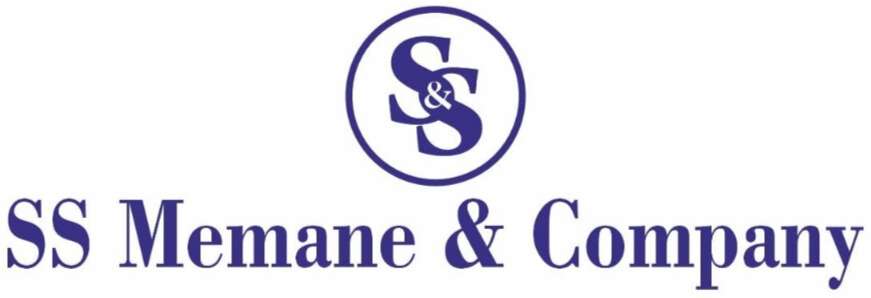Professional Tax Registration
Quick Contact
Documents Required
- Pan Card
- Bank Account Details
- Aadhaar Card
- Business Address Proof
- GSTIN (if applicable)
Professional Tax (PTRC-PTEC) Registration
Startup India is a flagship initiative of the Government of India, launched in January 2016, aimed at promoting innovation, entrepre
Professional Tax in India is a tax levied by state governments on professions, trades, callings, and employments. The tax is applicable to individuals, businesses, and entities engaged in various professions and occupations. The registration for Professional Tax involves obtaining two types of certificates:
- Professional Tax Registration Certificate (PTRC): For employers who need to deduct and pay professional tax on behalf of their employees.
- Professional Tax Enrollment Certificate (PTEC): For individuals or entities liable to pay professional tax directly.
neurship, and the growth of startups across the country. The initiative offers a range of benefits, including tax exemptions, easier access to capital, and simplified regulatory compliance to foster a robust startup ecosystem. Registering under the Startup India program provides startups with official recognition and access to a host of incentives designed to support their growth and development.
Advantages :
Legal Compliance:
Ensures that your business or profession complies with state laws and avoids penalties or legal issues.
Employment Benefits:
Helps in proper documentation and payment of professional tax for employees, ensuring that all statutory obligations are met.
Ease of Tax Payment:
Streamlines the process of professional tax payment and helps in maintaining accurate records for auditing and compliance purposes.
Avoids Penalties:
Timely registration and payment prevent penalties and interest charges imposed for non-compliance.
Professional Credibility:
Demonstrates your business’s commitment to adhering to regulatory requirements, enhancing credibility and trust with stakeholders.
Disadvantages:
Administrative Burden:
Involves maintaining records and filing returns regularly, which can add to administrative tasks.
Cost of Compliance:
There may be costs associated with registration, compliance, and penalties for delayed payments or non-compliance.
Variation in State Laws:
Professional tax regulations vary across states, requiring businesses to stay updated on specific requirements applicable to their location.
Limited Awareness:
Many businesses and professionals may not be fully aware of their obligations or the process for registration, leading to potential non-compliance.
Complexity in Filing:
The process can be complex, especially for businesses with a large number of employees or multiple branches in different states.
Required Documents:
Business Registration Certificate:
- Proof of business registration such as Certificate of Incorporation, Partnership Deed, or other relevant documents.
PAN Card:
- PAN card of the business or individual.
Address Proof:
- Recent utility bills, lease agreement, or other proof of address.
Identity Proof:
- Aadhaar card, passport, driving license, or voter ID of the owner or authorized signatory.
Bank Statement:
- Recent bank statement of the business or individual.
Additional Documents:
- Depending on state requirements, additional documents may be required.
Registration Process
1. Determine Liability:
- For Employers (PTRC): Assess if you are liable to deduct and pay professional tax on behalf of employees.
- For Individuals/Entities (PTEC): Determine if you need to pay professional tax directly.
2. Gather Required Documents:
- Business Registration Certificate: Proof of business registration (e.g., Certificate of Incorporation, Partnership Deed).
- PAN Card: Permanent Account Number (PAN) of the business or individual.
- Address Proof: Proof of address of the business or individual (e.g., utility bill, lease agreement).
- Identity Proof: Identity proof of the owner or authorized signatory.
- Bank Statement: Recent bank statement of the business or individual.
3. Submit Application:
- For PTRC: Submit an application to the relevant state’s Professional Tax department, along with the required documents.
- For PTEC: Apply online or offline through the state’s tax department or local municipal office.
4. Receive Certificate:
- Upon successful processing, you will receive the Professional Tax Registration Certificate (PTRC) or Enrollment Certificate (PTEC).
5. Maintain Records:
- Maintain accurate records of professional tax payments and deductions, and ensure timely filing of returns as per state regulations.
6. File Returns:
- Regularly file professional tax returns as required by the state’s tax authority, ensuring compliance with payment deadlines.
Eligibility Criteria
1. Professional Tax Registration Certificate (PTRC)
Who Needs PTRC?
- Employers: Any employer, including companies, firms, partnerships, LLPs, and sole proprietorships, who has employees earning a salary above the professional tax exemption limit set by the respective state must obtain a PTRC. The employer is responsible for deducting professional tax from employees’ salaries and remitting it to the government.
Number of Employees:
- Businesses with employees in multiple states need to register separately for PTRC in each state where they have employees.
Salary Threshold:
- The salary threshold for deducting professional tax varies from state to state. Employers must check the specific threshold applicable in their state.
2. Professional Tax Enrollment Certificate (PTEC)
Who Needs PTEC?
- Self-Employed Individuals and Professionals: Individuals engaged in any profession, trade, or calling (such as doctors, lawyers, chartered accountants, consultants, etc.) and earning above the exemption limit set by the state must obtain a PTEC and pay professional tax directly to the government.
- Businesses Without Employees: If a business entity (like a company or firm) does not have employees but is engaged in a profession or trade, it must obtain a PTEC to pay professional tax for the business itself.
Entities Liable:
- Businesses such as proprietorships, partnership firms, LLPs, companies, societies, and other entities are required to obtain PTEC if they are engaged in any professional activity and earn above the prescribed limit.
Income Threshold:
- The income threshold for paying professional tax varies by state. Professionals and businesses should check the specific limit in their respective state.
3. Exemptions
- Central Government Employees: Employees of the Central Government are typically exempt from paying professional tax.
- Senior Citizens: Individuals above a certain age (usually 65 years or more) may be exempt from paying professional tax.
- Low-Income Individuals: Individuals earning below the prescribed income threshold in their state are exempt from paying professional tax.
- Disabled Individuals: Some states offer exemptions for individuals with physical disabilities.
- Copyright 2024 © SS Memane || Designed By || Mr. Sunil Memane


